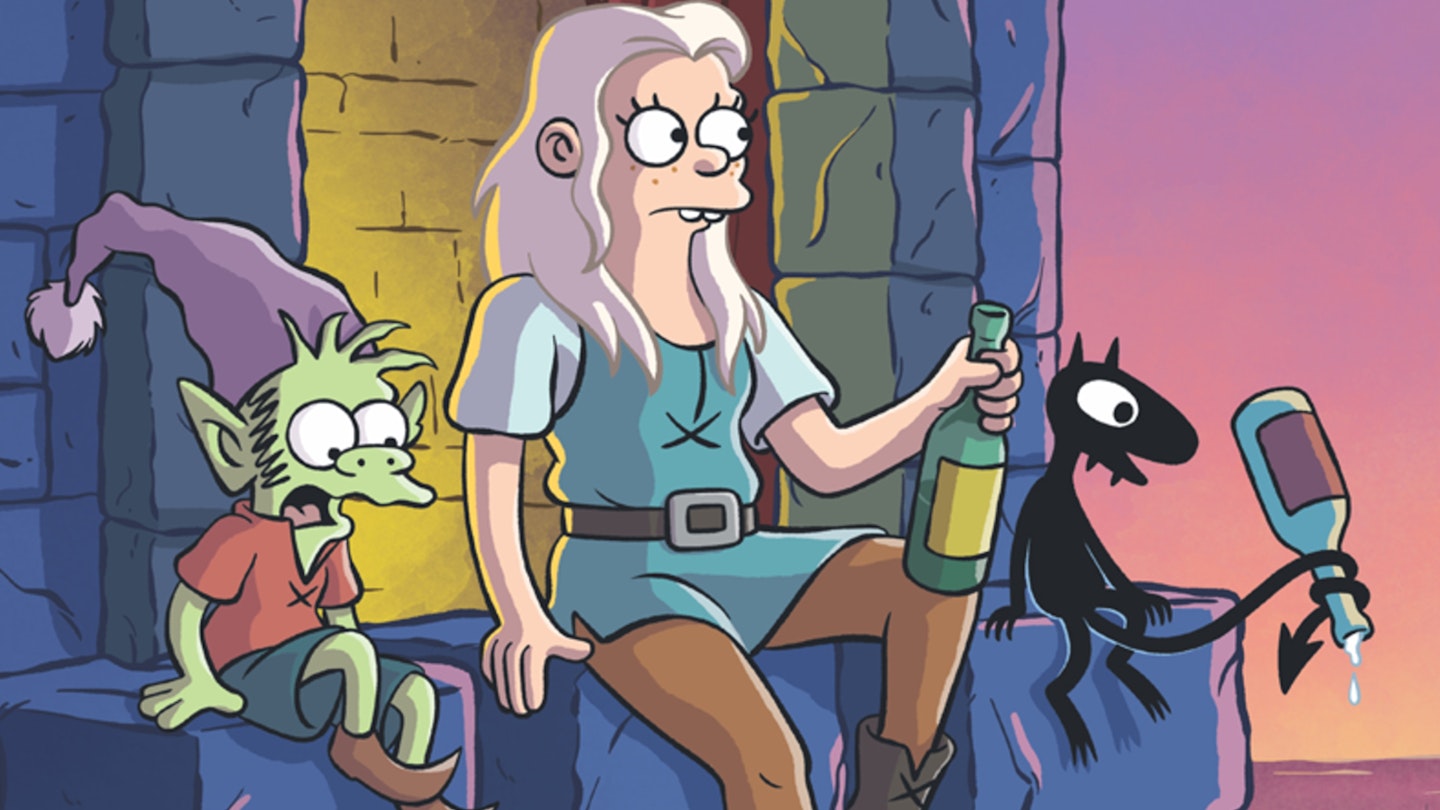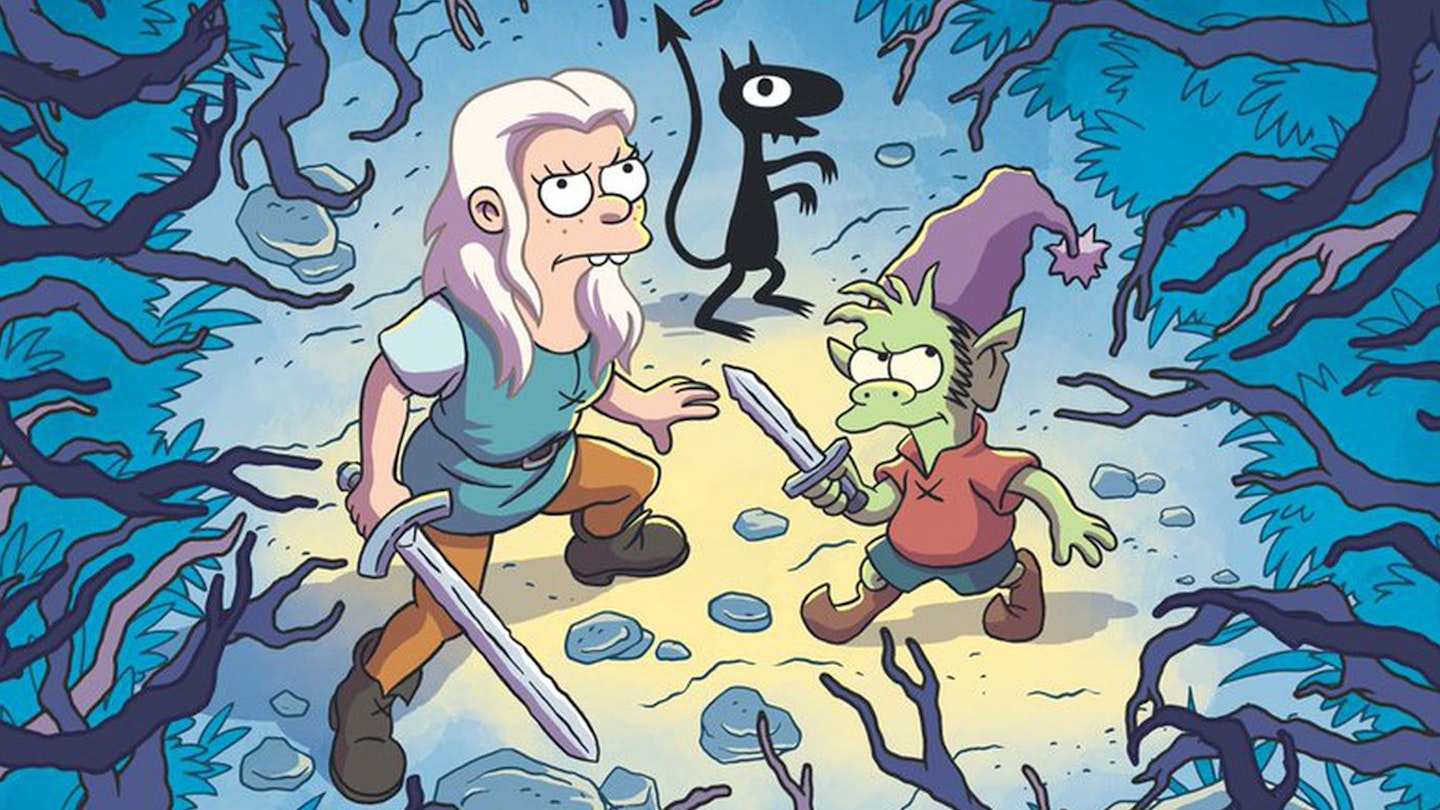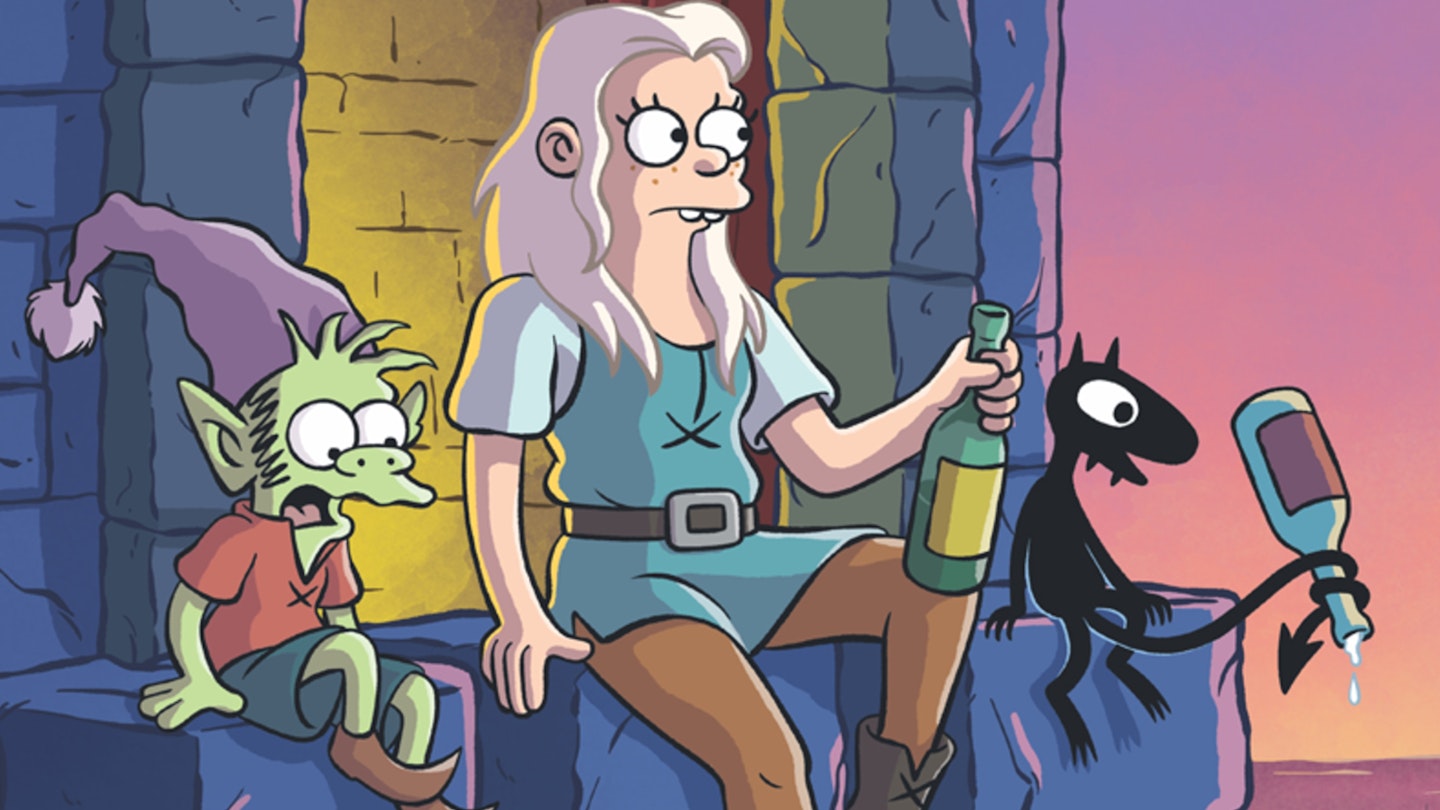Following up such a pop culture-conquering hit as The Simpsons must be a daunting task. Whatever comes next, it’s sure to be prodded, probed and scrutinised far more than any other show and, when the very public examination’s finally over, inevitably deemed to be inferior. Happily for Matt Groening, it’s a problem he’s already faced up to, and Futurama is now a classic of TV animation.

It’s that series, if any, that Groening’s latest comedy Disenchantment should be compared against. Both have genre settings, both feature a core group of characters thrust together by circumstance rather than family, and both tell (something approaching) an ongoing narrative rather than hitting the reset button at the end of every episode.
Disenchantment does suffer from a worryingly uneven start. But it does pick up.
Set in the woefully inaccurately named Dreamland, a medieval realm of gnomes, elves and orcs, its central trio are hard-drinking princess Bean (Abbi Jacobson), her own personal demon Luci (Eric André) and runaway elf Elfo (Nat Faxon). But it’s Bean who (at least in these early episodes) is our focus. When we meet her, she’s trying to get out of an arranged marriage to the prince of a nearby kingdom — by any means necessary, including trying to off him by organising a bachelor party boat trip to siren-infested waters. This is not a show to shy away from the more gruesome aspects of fantasy-realm life — public beheadings are so commonplace, there’s a healthy market for blood-splatter-proof ponchos.
Disenchantment does suffer from a worryingly uneven start, though. While gags come thick and fast, ones that land successfully are alarmingly less common. It stumbles as it attempts to both set up its characters and race through the plot machinations needed to bring them all together. But it does pick up. With the status quo established, and the characters able to play off each other, the hit rate increases, and by the time Bean is hosting an illicit kegger after poisoning the king to get him out of the castle, the writing has sharpened and the unease faded.
As was the case with Futurama, the Disenchantment writers have an obvious affection for (and mastery of) the show’s setting. Monty Python, specifically the group’s films, is a clear influence. And while it’s pitched as high fantasy, it regularly veers off to a heightened approximation of the real world, which allows for swipes at everything from gender inequality to organised religion. It’s at these moments that it’s at its best, especially when the characters’ Dark Ages sensibilities reflect current times. When the King’s advisor dismisses using science for “something based more in reality — religious magic”, it’s hard not to think of middle America denying climate change or sending thoughts and prayers in answer to another school shooting.
It’s recognisably a Matt Groening production, then (right down to the overbites and freeze-frame background signs), although it’s not yet the equal of his previous work. But Futurama didn’t peak until Season 4 — and, groundwork laid, there’s good reason to believe it’ll keep getting better.

